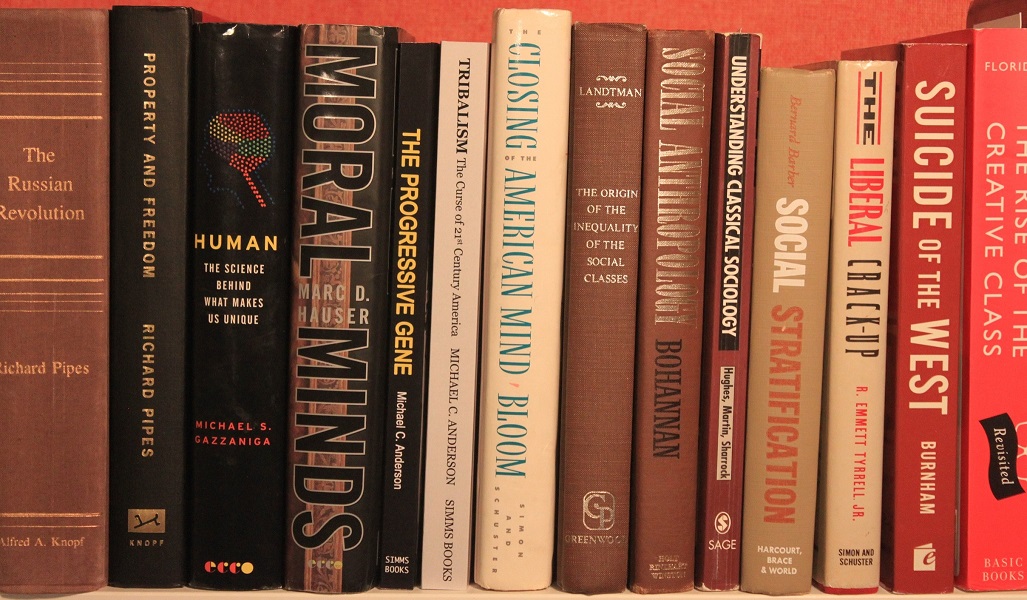The cause of America’s tribalism is simple, if you think about it.
Groups of Americans have become uncomfortable with the direction of our society,
and have reverted to a tribal mentality. Tribes offer safety because they are
smaller groups of like minded people.
The details explaining our tribalism are complicated and need some
discussion to help understand them.
Tribalism is possible because the political morality of the Right
and Left are different. People on the Left concern themselves with groups and
their status. They see capitalism as unfair because it leads to poverty and inequality.
Their efforts in the political seek to expand the welfare state with programs
that will solve the major problems of society. People on the Right are concerned
with liberty. They see man’s opportunity to succeed in the world as dependent a
government that focuses on individualism and reward for hard work. To the
Right, big government and welfare state programs destroy liberty through asset
transfers. Expansion of the welfare state requires increased taxation, so the monetary
assets of the public are transferred to government. That transfer might be
legitimized if the results showed that the funded programs were effective. More
often than not, they show them to be ineffective.
The personality of the Left is driven by the desire for change; a
restless discomfort with the status quo and a feeling that change is normal and
will make things better. The personality of the Right is driven by resistance to
change and an attraction to traditions. The Right believes that traditions are
the foundations for the advancement of society and dictate how much change is reasonable.
There are four major factors that push us into tribalism: changes
in society, grievances of identity groups, postmodern communications, and a
corrupted media.
1. The last forty years has seen enormous change to the American
cultural landscape. The family has changed in character and definition, people
have become less religious, and are now too busy to socialize. This is
discomforting to the Right because its too much change too fast and represents
a tearing down of important traditions that act to the benefit of mankind.
2. Our society has become divided by identity and lost the ability
to come together as Americans. Identity groups, who have grievances, work to
correct them but, even when progress is made, remain separated from the whole.
3. During the last two decades, technology has overwhelmed us. Instant
communication has made us all feel that the world is moving faster. We feel
pressure to live in the instant. That pressure is unsettling.
4. The traditional media has to compete with the internet for
audience share, and has corrupted itself in the process. Because the internet
has no filter, the most awful ideas are presented and hyped there. Every idiot
has a platform. The traditional media could take the high road and provide a
rational alternative, but instead chose to participate in the same game. The
presentation and discussion of extreme political positions creates a misleading
picture of reality to the public, while ignoring the good stories and the fundamental
fairness of the American people. The artificial world presented is depressing.
The political parties are polarized because the American people
are polarized. The moderate senators and Congressmen who used to populate the
Congress are gone, so all that remains are the extremes. Moreover, each of the
parties is fractured by ideological arguments. Democrats fight themselves over
how far to the Left they should be; liberal or socialist? The Right fights
itself over fiscal responsibility and the politicization of traditional values.
The divide between them will not be fixed unless the American people tell the
Congress to get their house in order.
How will American tribalism resolve itself? The short answer is
that it will abate when the opposing tribes realize their lack of communication
is not healthy and stands in the way of progress; when progress and unity start
to mean more than stagnation and enmity.
Conservatives will continue to advocate for traditions and their
will always be conservatives to do that. The Left, which contains many who believe
in the American ideal, needs to separate itself from the radical Left and show
its willingness to communicate with the Right. The identity groups need to see
themselves as Americans rather than merely human beings with a set of personal
characteristics.
We all need to slow down. The idea that human life must be lived
through a cell phone is an absurdity that belittles the capacity we all have to
make the world a better place.

